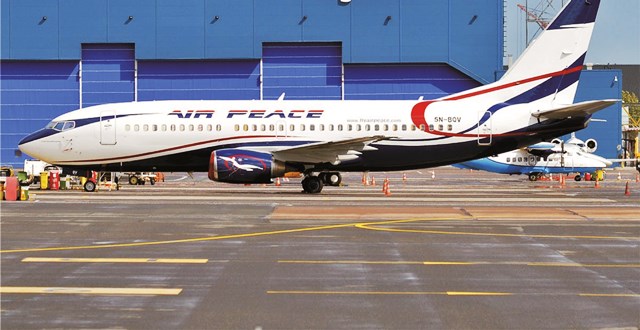Business
Air Peace Sacks 70 Pilots

Air Peace last Monday sacked over 70 pilots cutting across its fleet types as the negative impact of COVID-19 pandemic continues to take a huge toll on its operations like other mega carriers in Europe, America, Middle East, Asia, Australia and other parts of Africa.
The airline said the decision became painful, but rightful in the face of the devastating effects of the COVID-19 pandemic on its operations and financial health.
It said the job cuts for pilots among it over 3000 workers became imperative because it could not afford to toe the path of being unable to fulfill its financial obligation to its workers, external vendors, aviation agencies, aircraft maintenance organisations, insurance companies, banks and other creditors if it did not carry out restructuring of its entire operations to survive the times.
In a statement, the airline said it took the decision realising that such move was critical to sustain its operations and survive the times.
The airline said it realised that it was not immune from the challenges thrown up by the COVID -19 pandemic for the global transport industry as it had to act fast by protecting existing jobs with the hope of creating new ones in the future.
The statement read: “The management of Air Peace wishes to state that it has taken a very painful but rightful decision, in the circumstances the airline has found itself as a result of the devastating effects of the COVID-19 pandemic on its operations and financial health, to terminate the employment of some of its pilots.
“This decision was taken for the greater good of the company and its almost 3000 workforce, the affected pilots inclusive. The airline cannot afford to toe the path of being unable to continue to fulfil its financial obligations…”
Business
Fidelity Bank To Empower Women With Sustainable Entrepreneurship Skills, HAP2.0
Business
President Tinubu Approves Extension Ban On Raw Shea Nut Export
Business
Crisis Response: EU-project Delivers New Vet. Clinic To Katsina Govt.
-

 News2 days ago
News2 days agoAmend Constitution To Accommodate State Police, Tinubu Tells Senators
-

 Politics2 days ago
Politics2 days agoSenate Urges Tinubu To Sack CAC Boss
-

 News2 days ago
News2 days agoDisu Takes Over As New IGP …Declares Total War On Corruption, Impunity
-
Business2 days ago
President Tinubu Extends Raw Shea Nuts Export Ban To 2027
-
Business2 days ago
Crisis Response: EU-project Delivers New Vet. Clinic To Katsina Govt.
-
Business2 days ago
President Tinubu Approves Extension Ban On Raw Shea Nut Export
-
Rivers2 days ago
Etche Clan Urges Govt On Chieftaincy Recognition
-
Sports2 days ago
NDG: Rivers Coach Appeal To NDDC In Talent Discovery

